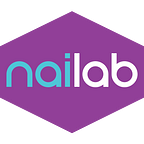“When I started my business, I was young and I thought that I could change the world. ” Dorcas Rahab Lumumba
What problem are you trying to solve through your business?
I was working at Kenya Agricultural and Livestock Research Organisation (KALRO). One time, we researched the European Union and found that the berries in Kenya mainly grew wild and those who grew berries did it on a small scale. So I started researching to find out where these big companies get berries for their yogurt. I found that we import 90% of the berries and vanilla that we consume in the country and yet research from KALRO showed that we can grow berries in our country. The problem that I am trying to solve is the high importation of berries in Kenya.
Why did you venture into farming? Does it have anything to do with your background?
My parents were both civil servants and no one in my family was a farmer or an entrepreneur. Two things that inspired me to venture into farming were my boarding school life, I went to boarding school at the age of ten and as a result, I became a free-spirited person. I was exposed to different cultures and I took an interest in farming. Secondly, I traveled to a very remote place in Uganda at the beginning of 2019 to find myself. I chose that place because it was disconnected from the world with no internet connection. I was there for four months and I spent that time with smallholder farmers in Uganda. I experienced the life of a farmer, waking up in the morning, going to the farm, and finding the market to sell our produce. When I came back to Kenya I enrolled in the Next Economy program at Nailab, learned skills on entrepreneurship and then I started my venture.
What was your mission from the onset, has it changed in any way?
When I started, the business concept was to work with smallholder farmers and grow different types of fruits. I was young and excited and I thought that I could change the world but I realized soon after that it wasn’t practical. We decided to focus on one thing, the berries because we did not have enough capital to plant everything at once, and at least with berries we were guaranteed a market. Our business model is called collaborative farming. We identify farmers, to lend us their land, we give them the seedlings, fertilizer, and anything else they might need. The farmer provides the land and the labor. After the harvest, Climgric Africa looks for the market and we split the profits with the farmers.
How do you identify the farmers to work with? Are they all located in one region?
The farmers we work with are recommended by people that I know and some apply through our website. Before I decide to work with a farmer, I visit their farm to see the farm condition. If all is good we sign a contract. I made a mistake when we started by working with farmers from different parts of the country but I shortly realized that it was hectic. The travel costs were high because I had to travel often to check up on them. Right now I am only working with farmers from Kiambu county with time I might expand to other regions but for now, it is easier to monitor farmers from this region.
Let’s talk about future goals, where do you see your business in the next five years?
I see Climgric Africa as the go-to company for berries. Whenever anyone thinks about buying berries, the first thought that should come to mind is our farms. I also want to expand and bring more farmers on board. My goal is to work with at least 450 farmers. Lastly, I want to expand our berry arm and grow more than just strawberries, right now we are in the process of raising seedlings for gooseberries and hope to roll that out by March.
What would say has enabled your company to grow?
I would say my network. As an entrepreneur, you need friends who are fellow entrepreneurs like you. When things don’t seem like they are going to work out, they will be there to encourage you and give you advice because they have been through that challenge before or they are going through it now. You also need business mentors to help you with the aspects of the business that you are not familiar with.
If you had one piece of advice that you would give to someone who is just starting a business, what would it be?
My advice to them would be that they need to be patient. Entrepreneurship is a process that requires you to be very tenacious. You may not get a return on investment as soon as you would expect. You might be in business for a year and realize that all the business does is take away from you.
